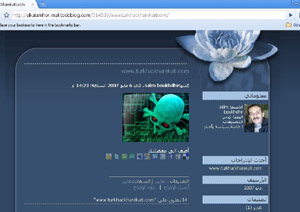Tunisia blocks journalists from press conferences
New York, March 25, 2010—Tunisian authorities banned journalists from attending two press conferences for the launch of local and international human rights reports this week, and is stepping up harassment of journalists overall, the Committee to Protect Journalists said today.
Tunisian airport officials confiscate CPJ publications
On Saturday, Tunis airport customs officials confiscated two copies of CPJ’s annual report, Attacks on the Press, as well as five copies of the Arabic-language translation of the Middle East and North Africa section of the book from Tunisian rights lawyer Mohamed Abbou and journalist Lotfi Hidouri on their return from Morocco, the two men told CPJ.
Attacks on the Press 2009: Tunisia
Top Developments• Government engineers ouster of independent journalist union leaders.• Two journalists are jailed in retaliation for critical reporting. Key Statistic 97: Percentage of newspaper campaign coverage that was devoted to President Ben Ali. President Zine el Abidine Ben Ali was re-elected to a fifth term with 90 percent of the vote amid severe restrictions on…

A Tunisian blogger speaks out: ‘The candles are lit’
My country’s government brags unabashedly that it has not passed any laws that require government authorization to establish an electronic publication or a Web site or a blog on the Internet. Those that cheerlead for this government rely on this point to propagate the lie they call “the freedom to publish electronically” in Tunisia.
Tunisia must end reprisals against critical journalists
Dear Mr. President: As Tunisia’s October presidential and parliamentary elections draw closer, the Committee to Protect Journalists is writing to you for the second time in four months to protest reprisals against critical journalists and their families. It is inconceivable that free and fair elections can take place in an environment in which independent media are harassed and silenced. We urge you to honor your oft-stated commitment to promote free expression, and we ask that you instruct your government to allow our colleagues to perform their work unhindered.
A blogger in Tunisia: My life with the censor
The specter of government opposition to blogging, journalism, and free expression in general in Tunisia is so intense that the mere appearance of a specific name online is enough to push the government to block the Web site where it appears, even if that site is not critical of the government.
Attacks on the Press in 2008: Tunisia
The September abduction of writer Slim Boukhdhir was a chilling reminder of the insecurity that critical journalists face in this North African nation. President Zine El Abidine Ben Ali, in power since 1987, continued to operate a virtual police state, despite the moderate image his government vigorously promoted to the rest of the world.
Tunisia responds to critical CPJ report
We received a large package from the Tunisian Embassy in Washington on Friday. The package contained an official response to our September special report, “The Smiling Oppressor” and a hefty collection of Tunisian newspapers and individual articles that the government says demonstrates a “liberal and pluralistic media landscape” under President Zine El Abidine’s 21-year rule.…
State Department replies to CPJ on Tunisia
As we noted in a recent special report, Tunisian President Zine El Abidine Ben Ali relies on spying and intimidation to keep his citizens in line. The United States has been a friend and supporter of Ben Ali and not at all consistent in calling attention to ongoing human rights abuses, particularly the harassment, intimidation,…